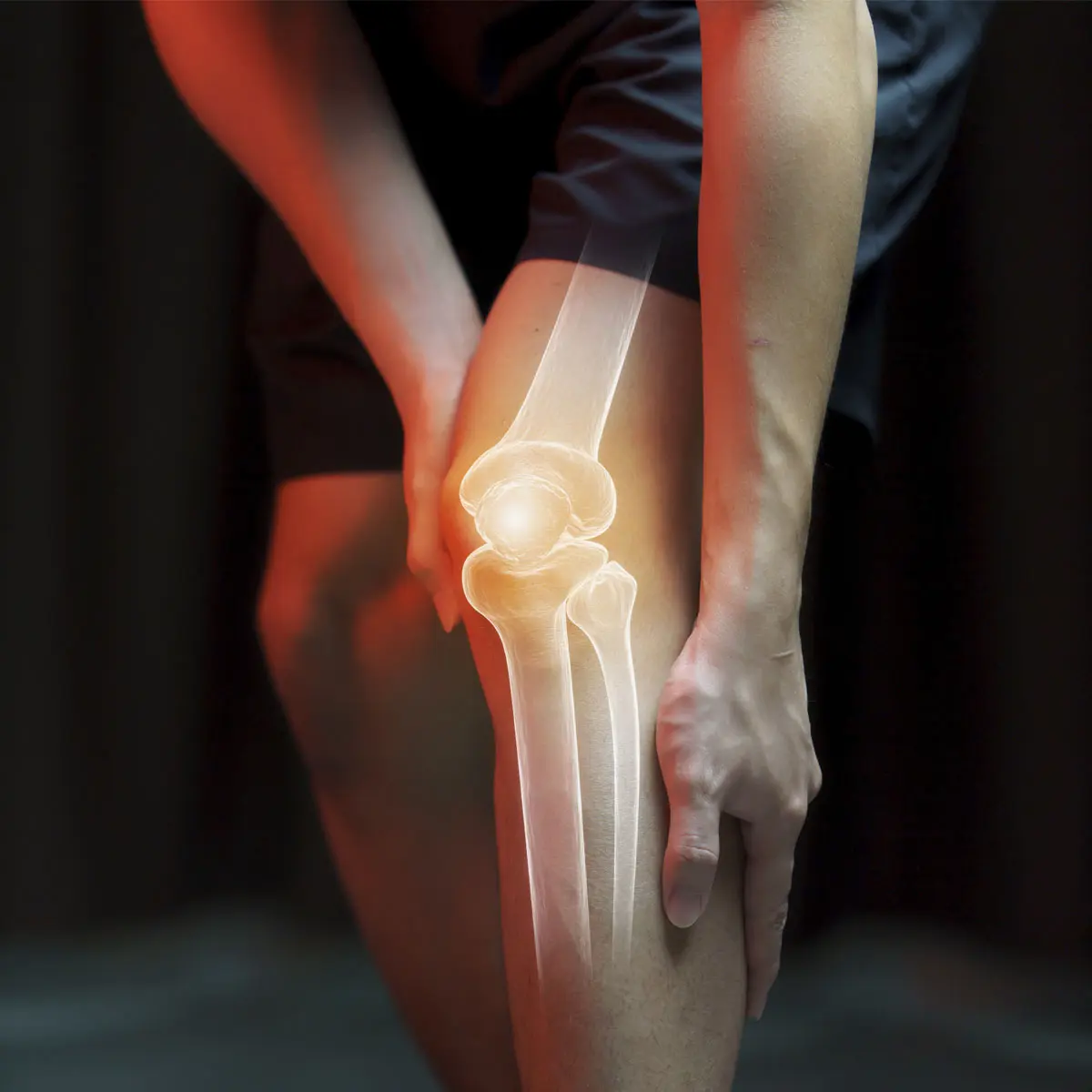Knee osteoarthritis is a condition that affects the knee joint, where there is a breakdown of the cartilage covering the ends of the bones. This breakdown can occur due to aging, joint inflammation, or previous injuries.
Causes of Knee Osteoarthritis:
- Aging: Cartilage becomes more susceptible to damage with advancing age.
- Joint Inflammation: Such as rheumatoid arthritis or inflammation due to overuse.
- Sports Injuries or Accidents: Such as bruises or tears leading to cartilage damage.
- Excess Weight: Overweight can increase the burden on the knee joint, leading to wear and tear
Symptoms of Knee Osteoarthritis:
- Pain in the joint during movement.
- Difficulty bending and straightening the knee.
- Swelling and redness in the joint.
- Painful sounds during movement (crepitus).
Diagnosis and Treatment:
Diagnosing knee osteoarthritis involves a physical examination and diagnostic imaging such as X-rays and MRI. Treatment depends on the severity and includes:
- Physical Therapy: To strengthen the muscles surrounding the knee.
- Medications: To alleviate pain and reduce inflammation.
- Lifestyle Changes: Such as weight loss and avoiding strenuous activities.
- Injections containing substances like Hyaluronic Acid: To improve joint lubrication.
- Surgery: In cases of severe progression and non-response to other treatments.
With early diagnosis and appropriate treatment, knee osteoarthritis can be effectively managed, improving the patient's quality of life. Contact us for more information and details tailored to your individual case

